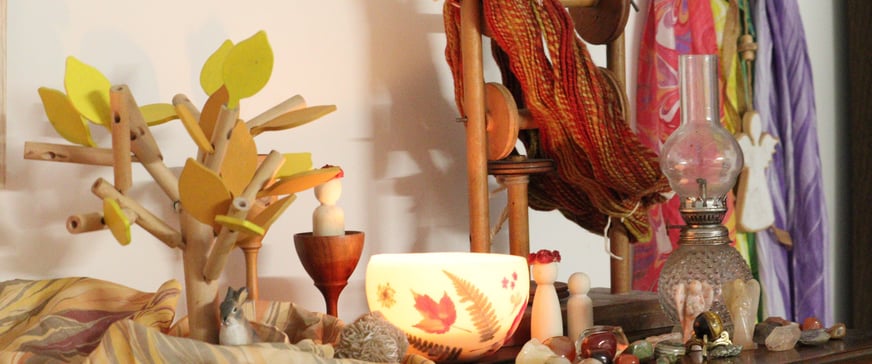How do Waldorf crafts benefit children?
How Waldorf crafts impact children and their development.
Jane
4/9/20232 min read


Waldorf crafts can have a significant impact on a child's self-esteem, confidence, and sense of accomplishment. This is because Waldorf crafts are often process-oriented rather than result-oriented, which means that the emphasis is on the creative process rather than the final product. In this way, children are encouraged to focus on their own ideas and impulses, and to develop their own unique approach to creating something.
By engaging in Waldorf crafts, children are given the opportunity to explore their own creativity and express themselves in a safe and supportive environment. This can be especially empowering for children who may struggle with academic subjects or who feel like they don't fit in with traditional forms of learning.
Additionally, Waldorf crafts often involve working with natural materials such as wool, wood, and beeswax, which can provide a sense of connection to the natural world and a deeper appreciation for the environment. This can help children to develop a greater sense of responsibility for the world around them and to feel a sense of accomplishment in creating something with their own hands.
Another important aspect of Waldorf crafts is the emphasis on the process of creating rather than the final product. Children are encouraged to focus on their own ideas and impulses, and to explore different materials and techniques without worrying about the end result. This can be very liberating for children who may feel pressure to perform or achieve certain goals in other areas of their lives.
Overall, Waldorf crafts can be a valuable tool for building self-esteem, confidence, and a sense of accomplishment in children. By providing a safe and supportive environment for creative exploration and expression, Waldorf crafts can help children to develop a greater sense of self-awareness, self-confidence, and self-worth.
Here are some Waldorf craft ideas to introduce into your home:
Wet felting: Use soap, water, and wool roving to create felted balls, beads, bowls, or even clothing.
Knitting: Learn basic knitting stitches and create your own scarves, hats, or other clothing items.
Embroidery: Use embroidery floss to add decorative designs to fabric, such as tea towels or pillowcases.
Beeswax modeling: Create small sculptures or figures using beeswax that can be used for storytelling or imaginative play.
Soap making: Use natural ingredients like goat's milk, honey, and essential oils to create your own soap bars.
Candle making: Create your own beeswax candles using sheets of beeswax and wicks.
Woodworking: Learn basic woodworking skills to create small objects like wooden spoons or toys.
These Waldorf craft ideas are just the beginning! Get creative and try your own variations or explore other Waldorf crafts that interest you.
Please let me know what benefits you have seen or know of from embracing Waldorf crafts in the comments.
